This post was originally published in August 2020 and updated in March 2021. Lori Blahey is a former Senior Marketing Consultant at EPL.
Starting Kindergarten can be a big transition for a child. To help them succeed in their first year of school, children need the necessary skills, referred to as Kindergarten Readiness.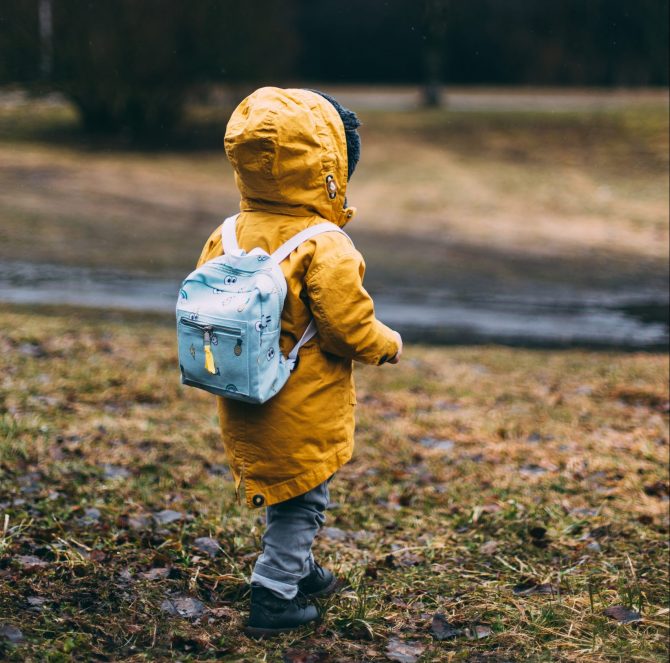
What is Kindergarten Readiness and why is it important?
The Urban Child Institute defines Kindergarten Readiness as “a child’s ability to participate successfully in the learning process when [they reach] school.”1
Being prepared for Kindergarten not only sets up a child for success that first year but is also strongly associated with better academic outcomes throughout their school years, including higher graduation rates and less grade repetition.2
When is the right time to start thinking about Kindergarten?
It’s never too early to start thinking about your child’s first year of school. Children who are exposed to reading and language-rich environments and have positive associations with reading prior to Kindergarten have a better chance of success in school.3
You are your child’s first and best teacher — that’s why we encourage you to build these key areas into your everyday routines as early as possible. Some areas (such as reading) are appropriate for children as young as babies, whereas others (such as problem solving or self-management) are more suitable for toddlers and up.
What skills do children need to succeed in Kindergarten?
We recommend focusing on six key areas to help preschoolers get ready for their first year of school. Children can develop these skills or practices in structured environments (such as daycare or preschool classes) or at home.
1) Reading
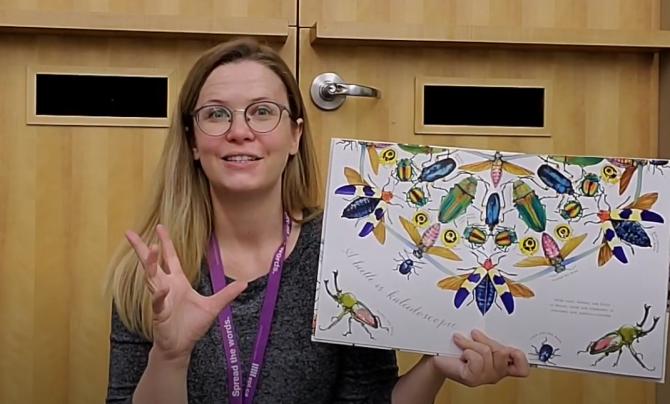
Why reading is important:
While preschoolers are not expected to know how to read when they enter Kindergarten, reading to your child helps them develop early literacy skills, which is everything they know about reading and writing before they can do it themselves. Building literacy skills early means your child is much more likely to become a good reader, which is essential for learning and future school success. Conversely, a child who has not achieved a modest reading level by the end of Grade 3 is unlikely to graduate from high school.4
How you can support reading at home:
Be a good role model! Children who see adults enjoying reading are more likely to be interested too.5
Read daily, but don’t focus on the format (recipes, street signs and comic books all count) or time spent (short, positive interactions will help to create a love of reading). Make it easy by having books around and while you’re reading, run your finger along the words to show that what you’re saying connects with what is printed. Talk about what you see and ask questions to help build your child’s reading comprehension.
2) Language and Speech Development
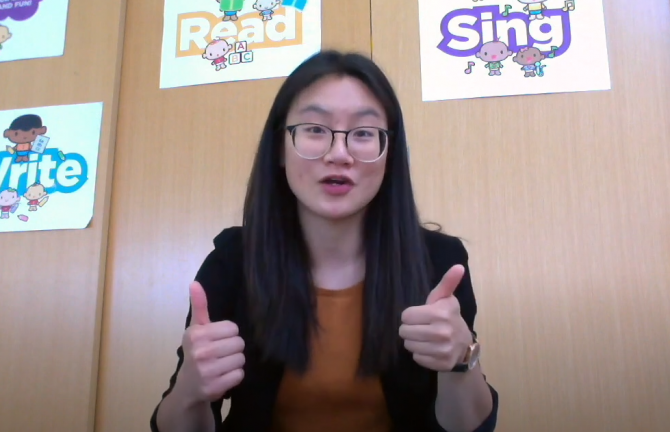
Why language and speech development is important:
Together with strong literacy skills, children with strong language skills are more likely to go further in school, have a higher income and be healthier and happier throughout life.6 In short, the benefits are life changing.
How you can support language and speech development at home:
Talking frequently with your child — in your home language — is the easiest way to encourage development of these critical skills. Preschoolers are better at having opinions and they’ll likely want to express their ideas and feelings with you. Following the “serve and return” model, notice your child’s cues and interests (the serve) and respond with support and encouragement (the return). These back-and-forth interactions strengthen brain cell connections7 and teach your preschooler how to have longer conversations and to take turns listening.8
Singing is also great way to start to develop language from an early age, but it continues to be beneficial (and fun) as kids get older.
3) Movement
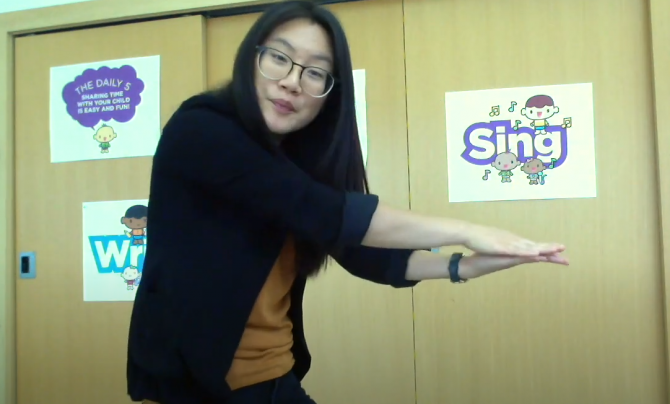
Why movement is important:
According to Canada’s new 24-hour movement guidelines, children aged one to four need to be active for 180 minutes a day and five-year-olds need to play energetically for at least 60 minutes a day. Movement is key to children’s healthy development as it improves everything from their physical and mental health to school success and general quality of life. Integrating movement into daily routines and activities can help concentration and improve behaviour.9 Like dancing, it’s also a great way for children to learn about how their bodies work. They are developing control and balance — and having fun!
How you can support movement at home:
Get moving and grooving with your child and make it a family affair. Dance to this list of CDs and streaming music or check out these kid-friendly tunes from singer Beppie on Capital City Records, EPL’s source for great local music.
4) Problem Solving
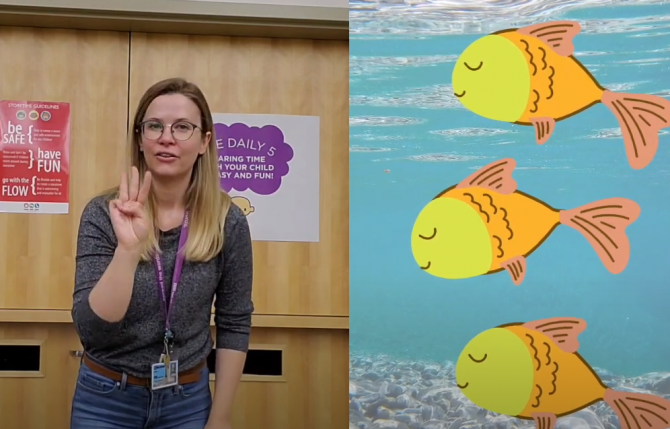
Why problem solving is important:
As parents know, life is full of challenges! Getting children to practise solving their smaller problems now means they’ll be better at solving bigger problems in the future.
How you can support problem solving at home:
As children get older, it’s important to increase the difficulty and complexity of the challenges presented to them, while continuing to provide encouragement and support if the child becomes frustrated.
For example, sorting items by shapes OR colours is an appropriate challenge for toddlers. However, asking preschoolers to sort items by shapes AND colours not only helps with colour and shape recognition, but also gives them an opportunity to learn about solving problems.
Problem-solving activities don’t need to feel like homework. Board games and puzzles are great opportunities to practise this skill in a fun way. Play is also very important for children and encourages problem-solving skills. In fact, a study found that children who were good at pretend play were good at problem solving because they have experience thinking about different possibilities or outcomes.10
5) Self-management
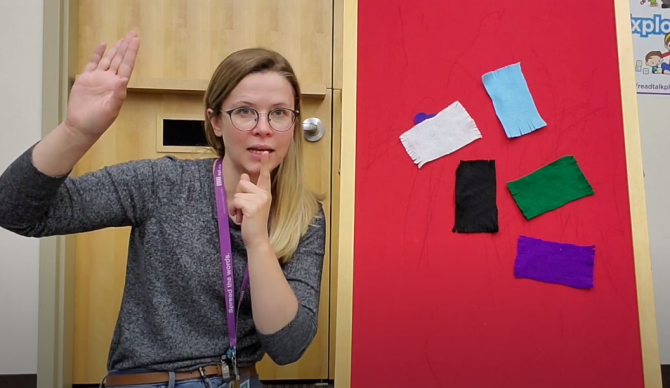
Why self-management is important:
A child’s ability to regulate their own behaviour is an important skill they need to succeed in a classroom environment and navigate the room management strategies their teachers may use. Specifically, preschoolers need to be able to recognize the growing complexity of feelings in themselves and others, identify solutions to simple problems, use strategies such as deep breathing to calm down (with support), focus their attention for increased lengths of time, learn to understand different perspectives and start to develop empathy.11
How you can support self-management at home:
Depending on your child’s previous experience in other environments (such as childcare settings) and with other children, self-management may be one of their biggest challenges. You can practise these skills at home by talking about feelings, acknowledging others’ feelings, taking turns and focusing on a specific task or activity for longer periods of time. Play and games also provide valuable learning opportunities for children, helping them develop empathy, resilience and the ability to work through their feelings.12
New Skills during COVID-19
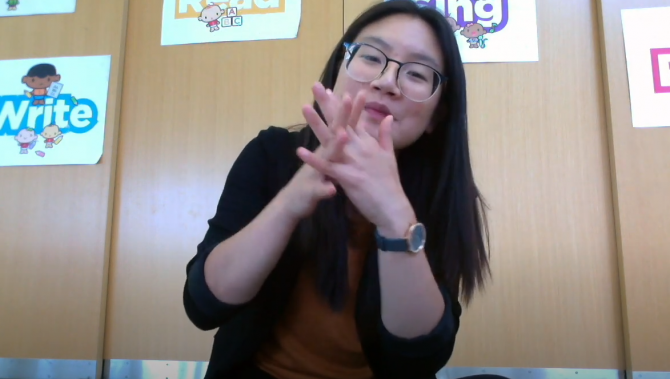
Due to global pandemic, Kindergarten will look different this year and preschoolers will need new skills to adapt. Start by talking to your child about COVID-19. These free eBooks for children provide simple explanations about the virus and ways for us to stay safe. Alberta Health Services also has information about talking to your kids about COVID, including keeping the message simple, offering comfort and honesty and acknowledging fears.
Washing hands:
Practise hand washing before and after activities and eating. You can sing a hand washing song or any song that will help your preschooler with how long to wash for and to make it fun!
Here’s one of our favourites, to the tune of Frère Jacques:
Tops and bottoms, tops and bottoms
In between, in between,
Wash and wash and wash them,
Wash and wash and wash them,
Nice and clean. Nice and clean.
Wearing masks:
Introduce masks to your preschooler honestly but positively. “When we wear masks, we stop germs from making people sick. It’s like a superpower!” Practise wearing them at home, making sure to cover the nose and mouth and remind children to not touch their masks once they’re on. Normalize masks by incorporating them into your routine, wearing them yourself and even putting them on toys!
To learn about mask requirements, visit the City of Edmonton or the Alberta Government website.
Physical distancing:
Physical distancing is a difficult concept for children for grasp. Six feet or two metres doesn’t mean much to a preschooler so try putting it in terms they might understand such as the length of an adult hockey stick or most beds. You can also use familiar objects and spaces to give them a point of reference.
How the Library Can Help
For Preschoolers: Kindergarten Readiness Classes
To support Kindergarten Readiness at home, EPL created four online classes just for preschoolers. These classes practise important skills needed for entering school and are lots of fun! Each video features a kid-friendly theme, songs, stories and opportunities for children to move around. Completing school-like activities at home13 (such as these classes) may be especially important for children who haven’t attended preschool or structured daycare.
For parents, EPL staff model how to interact with your preschooler to build these skills at home. Here are three tips to maximize the impact of each class:
- Watch the videos with your preschooler — this alone makes all the difference in the value your child will get from the classes
- Help them complete the take home activity for even more learning
- Incorporate these elements into your daily routines
Watch our Kindergarten Readiness videos
For Parents: Kindergarten Readiness Workshop
EPL and Calgary Public Library are joining forces to bring you Kitchen Table Classroom, a new series for parents and caregivers of school-aged children designed to support learning at home. In the March 2021 session, two Kindergarten teachers covered what to expect during this transition and tips for parents. Watch the replay:
References
- The Urban Child Institute. (2020). Data Book 2010: The State of Children in Memphis and Shelby County (No. 5). http://www.urbanchildinstitute.org/sites/all/files/databooks/TUCI_Data_Book_V_2010.complete.v2.pdf
- Heard-Garris, N. (2020b, April 20). Your 5-Year-Old. New York Times. https://www.nytimes.com/2020/04/18/parenting/milestones/5-year-old.html
- Logan, J. A. R., Justice, L. M., Yumuş, M., & Chaparro-Moreno, L. J. (2019). When Children Are Not Read to at Home. Journal of Developmental & Behavioral Pediatrics, Publish Ahead of Print, 383–386. https://doi.org/10.1097/DBP.0000000000000657
- The Annie E. Casey Foundation. (2010). Early warning! Why reading by the end of third grade matters. https://www.aecf.org/resources/early-warning-why-reading-by-the-end-of-third-grade-matters
- Healthy Parents, Healthy Children. (n.d.). Preschoolers: Growing and Learning Together. Retrieved July 28, 2020, from https://www.healthyparentshealthychildren.ca/im-a-parent/preschoolers-3-and-4-year-olds/social-emotional-development-2
- Edmonton Public Library. (2019). The Power of the Voice for Healthy Development [Infographic]. https://www.epl.ca/sharing-voices
- Healthy Parents, Healthy Children. (n.d.-b). Your Preschooler’s Growth & Development. Retrieved July 29, 2020, from https://www.healthyparentshealthychildren.ca/im-a-parent/preschoolers-3-and-4-year-olds/your-preschoolers-development/
- Healthy Parents, Healthy Children. (n.d.). Preschoolers: Growing and Learning Together. Retrieved July 28, 2020, from https://www.healthyparentshealthychildren.ca/im-a-parent/preschoolers-3-and-4-year-olds/social-emotional-development-2
- Weir, M. M. (2020, April 20). Your 4-Year-Old. New York Times. https://www.nytimes.com/2020/04/18/parenting/milestones/4-year-old.html
- Gopnik, A. (2012, June 30). Let the Children Play, It’s Good for Them! Smithsonian Magazine. https://www.smithsonianmag.com/science-nature/let-the-children-play-its-good-for-them-130697324/
- Rosanbalm, K. D., & Murray, D. W. (2017). Promoting Self-Regulation in the First Five Years: A Practice Brief. Office of Planning, Research, and Evaluation, Administration for Children and Families, U.S. Department of Health and Human Services. https://fpg.unc.edu/sites/fpg.unc.edu/files/resources/reports-and-policy-briefs/PromotingSelf-RegulationIntheFirstFiveYears.pdf
- Grose, J. (2020, July 21). The State of Play. New York Times. https://www.nytimes.com/2020/07/21/parenting/the-state-of-play.html
- Weir, M. M. (2020, April 20). Your 4-Year-Old. New York Times. https://www.nytimes.com/2020/04/18/parenting/milestones/4-year-old.html


Add a comment to: Kindergarten Readiness: Help Your Child Succeed in their First Year of School